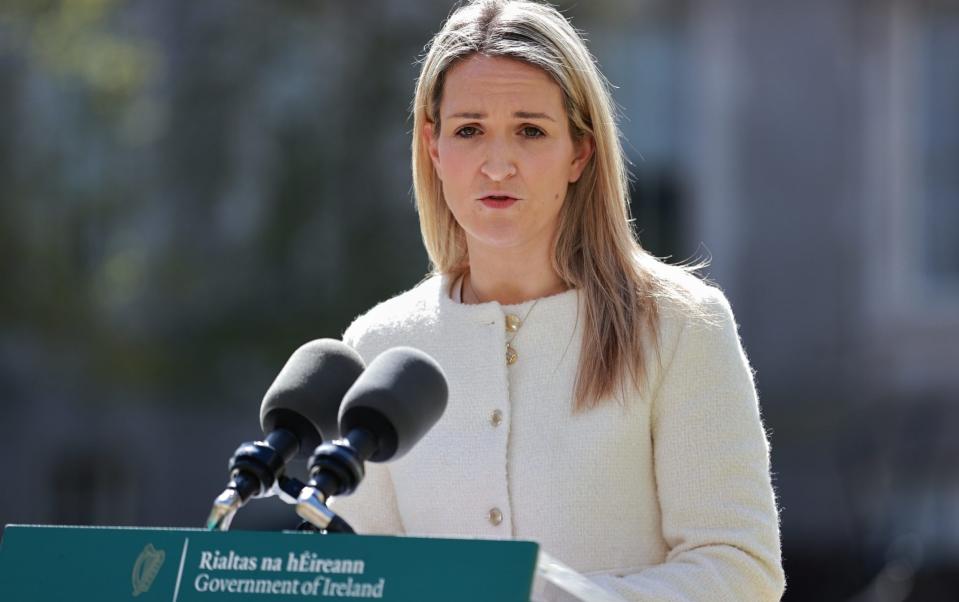Ireland has backed down on controversial hate speech laws, which critics had said could have been be used to jail opponents of transgender women using female changing rooms or toilets.
The Irish government shelved contentious provisions in its hate crimes bill after accusations they would have a chilling effect on free speech and an Irish senate revolt over the definition of gender.
The law became a lightning rod in a transatlantic culture war and was attacked last year by Donald Trump Jr and the billionaire Elon Musk, who said that he would fund any Irish legal challenges to the speech legislation.
Helen McEntee, the Irish justice minister, had previously blamed “deliberate misinformation and distortion, including from fringe commentators and US-based social media personalities”, for the controversy.
After the climbdown, she admitted, “The incitement to hatred element [of the bill] does not have a consensus, so that will be dealt with at a later stage.”
The slimmed-down legislation will be brought to the country’s parliament in the coming weeks, The Irish Times reported.
The bill will still introduce tougher sentences for crimes motivated by hatred such as assault and keeps protections for transgender and non-binary people.
It also retains the contentious extension of the definition of gender to include what “the person’s preferred gender, or with which the person identifies, and includes transgender and a gender other than those of male and female”.
The changes to the bill are designed to quell backbench disquiet over the legislation, but a number of MPs are uneasy about the Irish government becoming involved in a debate over how many genders exist.


Michael McDowell, a senator who is a former deputy prime minister and ex-attorney general, led the Irish senate revolt against the bill last year.
He argues that the new legislation gives no clarity on the extended definition of gender identities, which could impact gender balance laws and carry other legal risks.
“If the government wishes to provide heavier punishment for victims of crime committed because they are victimised as transgender, let them simply say that. There is no problem with doing so. There is no case or need for creating a multiplicity of unspecified subjective statuses described as genders,” he told The Irish Times on Tuesday.
He warned that the bill would be the first to recognise any gender other than male or female in Irish law and added that the Irish constitution only recognises two genders.
Last year, he told The Telegraph that the bill gave “all private citizens a right to arrest persons where they have reasonable grounds that they are engaging in hate speech”.
He had vowed to introduce free speech protections by amending the legislation.
Ireland’s department of justice confirmed to The Irish Times that the gender definitions would remain in the bill.
“If someone is assaulted because they are transgender, that is a hate crime,” a spokesman said.
“A definition is required to protect that person. It has absolutely no implications outside of this law.”
The spokesman added: “Does Michael McDowell believe that this person should be protected by this law, or does he believe this person should have to identify as male or female to be protected?”
The Irish government first brought the proposed legislation before the country’s parliament two years ago, and further prioritised tightening anti-hate laws it said were unfit for the social media age in November after an unprecedented night of anti-migrant rioting in Dublin.
In March, it was defeated in a referendum on modernising references to marriage being the foundation of the family and a “mother’s duties in the home” in the Irish constitution.



